If you’re going to grow potatoes in your garden, you’ll need to know how much sun they’ll need. Potatoes are hearty vegetables and can thrive when planted on most soils, as long as they have enough sunlight. But exactly how much sun do potatoes really need?
Potatoes need 6-8 hours of sunlight per day, and they should be planted in a sunny spot with well-drained soil. Some varieties can cope with less sun, but in general, making sure potatoes get at least 6 hours per day of sunshine will help them to thrive.
Congratulations! You’ve decided to plant potatoes, and you’re probably wondering how much sun they need. Potatoes can be grown in a variety of conditions and soil types, but it depends on other factors & growing conditions. Let’s dive in & get to the details.
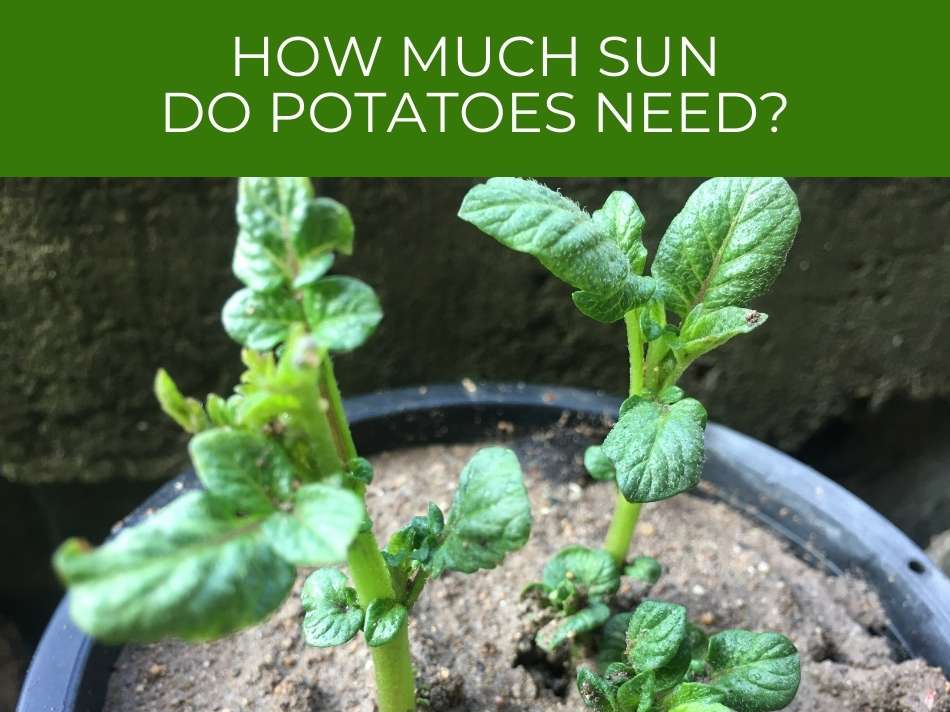
How much sun do potatoes need?
Potatoes need 6 to 8 hours of direct sunlight each day. If they don’t get enough light, they won’t grow properly. Potatoes should be planted in full sun, so that the leaves can absorb enough energy to produce the carbohydrates necessary for root growth.
If you’re planting your potatoes directly in the ground, you’ll want to make sure they get at least 6 hours of sunlight each day.
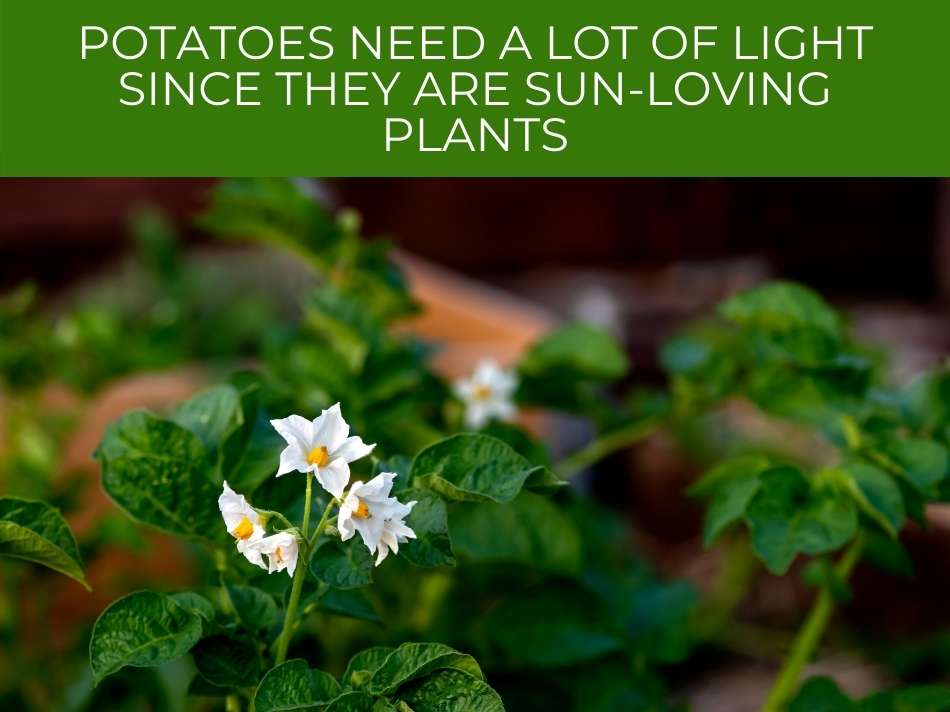
Potatoes need a lot of light since they are sun-loving plants. They should be planted in spring or early summer.
They are part of the nightshade family and are photosynthetic, which means they use light to produce their own food.
If your potato plants get less than 6 hours of sun per day, pay attention to their leaf growth pattern.
If they start looking stunted or misshapen, move them to a sunnier spot.
When it comes to watering, keep it simple: water deeply once every week or two (if there’s no rain).
Use mulch as well as compost when planting potatoes so that you don’t have to water as often.
See our tips on how deep to plant potatoes.
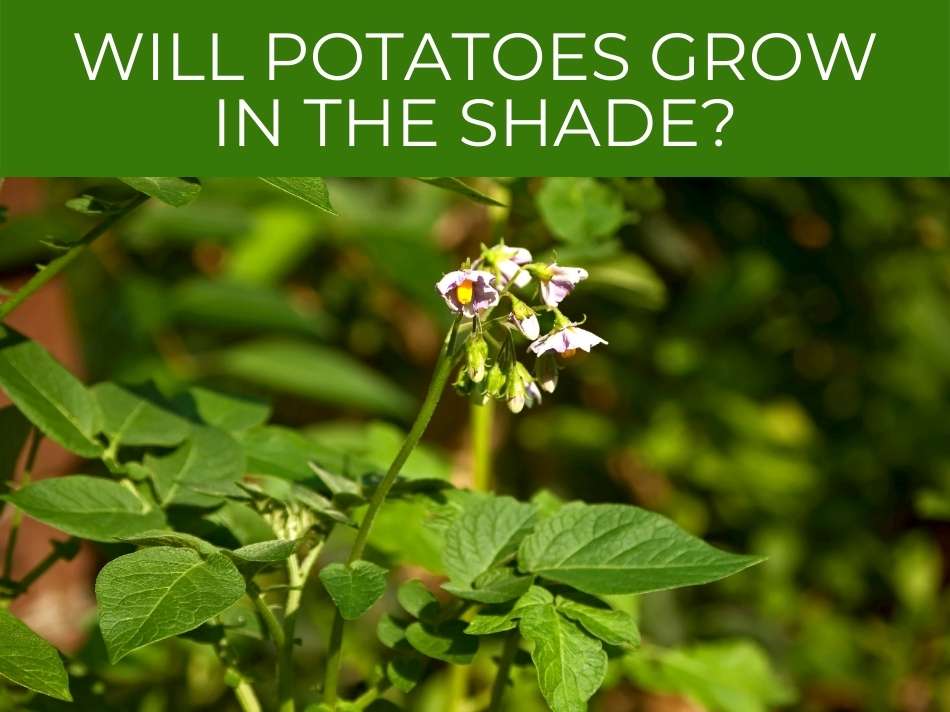
Will potatoes grow in the shade?
Yes, potatoes can grow in the shade. However, you should be aware that if you’re growing potatoes in a shady area, they won’t be as productive as they would be if they were getting 6-8 hours of sun per day.
If you’re growing your potatoes in a shady spot, you may want to plant them in a raised bed, so that they are more exposed to the sun.
In general, potatoes prefer full sun, but they can also be grown in partial shade, as long as it’s still a bit of a light spot.
With less light, potato plants have been found to be less productive.
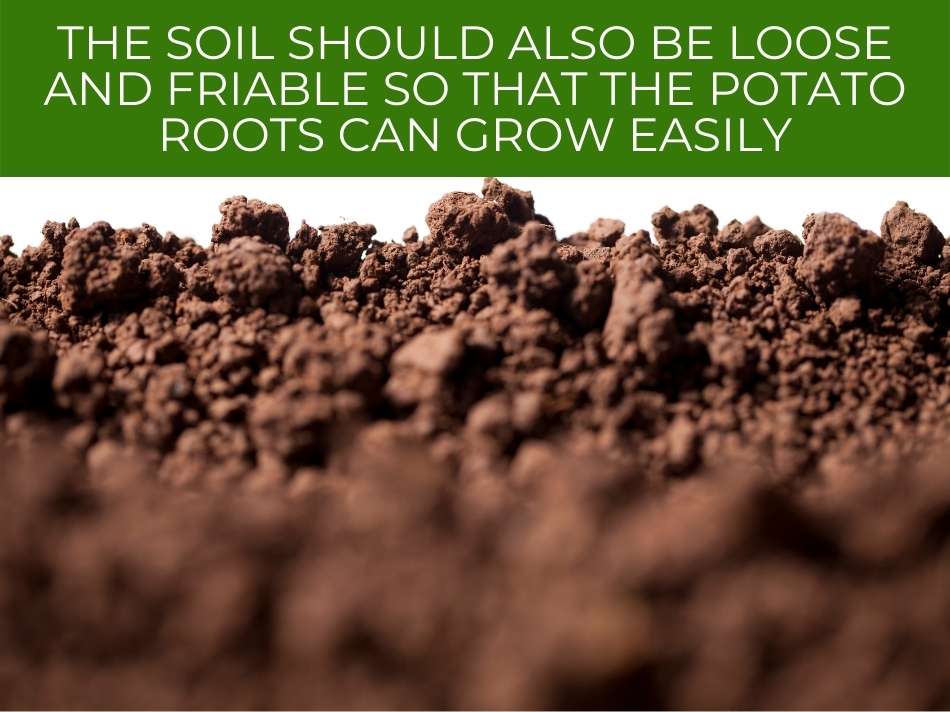
The soil should also be loose and friable so that the potato roots can grow easily.
The area needs to be free of weeds and grass, as well as rocks or other obstructions that might damage the roots.
Potatoes need plenty of water while they are growing – but not too much!
If you overwater your potatoes, they will rot.
They need 1-2 inches of water per week during their growth phase (this includes rain).
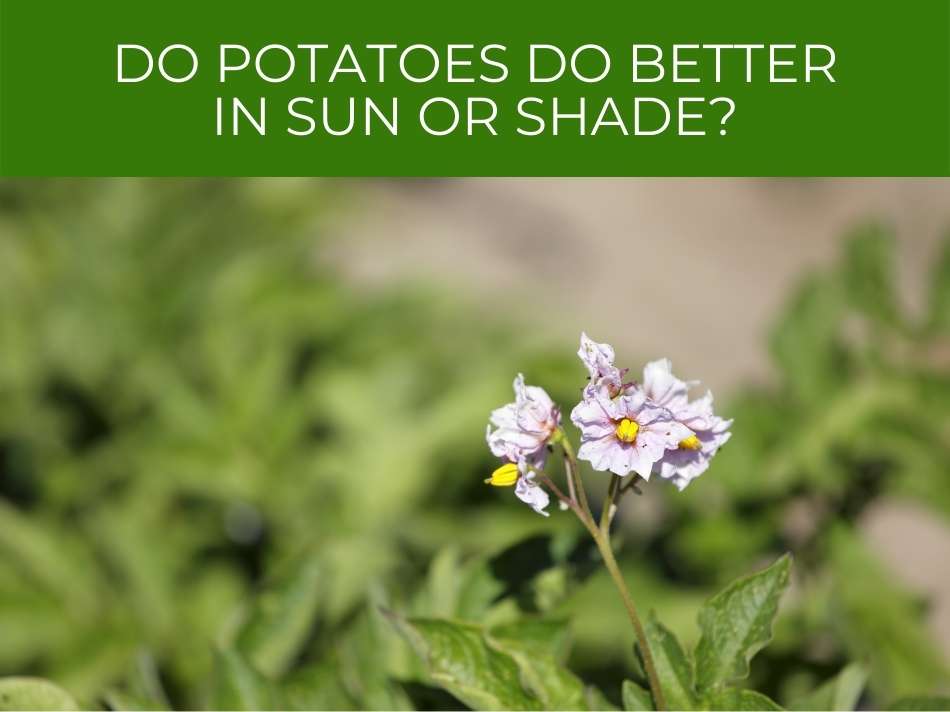
Do potatoes do better in sun or shade?
Potatoes do best in full sun. Ideally, they need at least 6 hours of direct sunlight a day to grow properly. Potatoes are root vegetables, so they need sunlight to grow. With more sunlight, potato plants grow taller, have larger & more leaves, & weigh more.
They don’t, however, like to be baked by the hot summer sun—they prefer a cool evening to a hot afternoon.
If you aren’t able to give them those conditions, try planting them in dappled shade, where the sun filters through the leaves of the trees above them.
They’ll still get enough light for their needs, but will be protected from intense, direct sun exposure.
As long as you aren’t getting them too much sun (which can cause the potatoes to turn green due to the production of a toxin called solanine), potato plants are happy in full sun or partial shade.
If you live somewhere where there isn’t much sunlight then try planting them in partial shade under trees or shrubs.
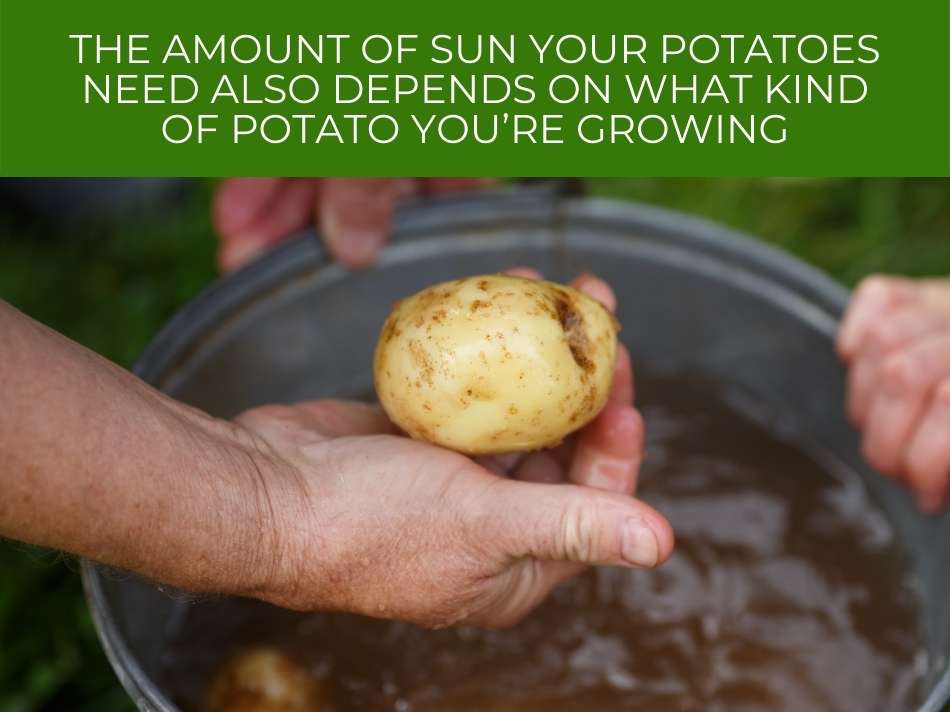
The amount of sun your potatoes need also depends on what kind of potato you’re growing.
If you’re growing an early variety, you’ll want to expose them to at least 6 hours of direct sunlight each day—ideally 8 or more hours, as they grow best in full sun.
If the leaves start to wilt, then they’re getting too much sun and need some shade!
On the other hand, if you’re growing a late variety that matures in September or October, they’ll need less sun.
They’ll also tolerate light shade from trees and buildings as long as it doesn’t get too cold (below 50°F).
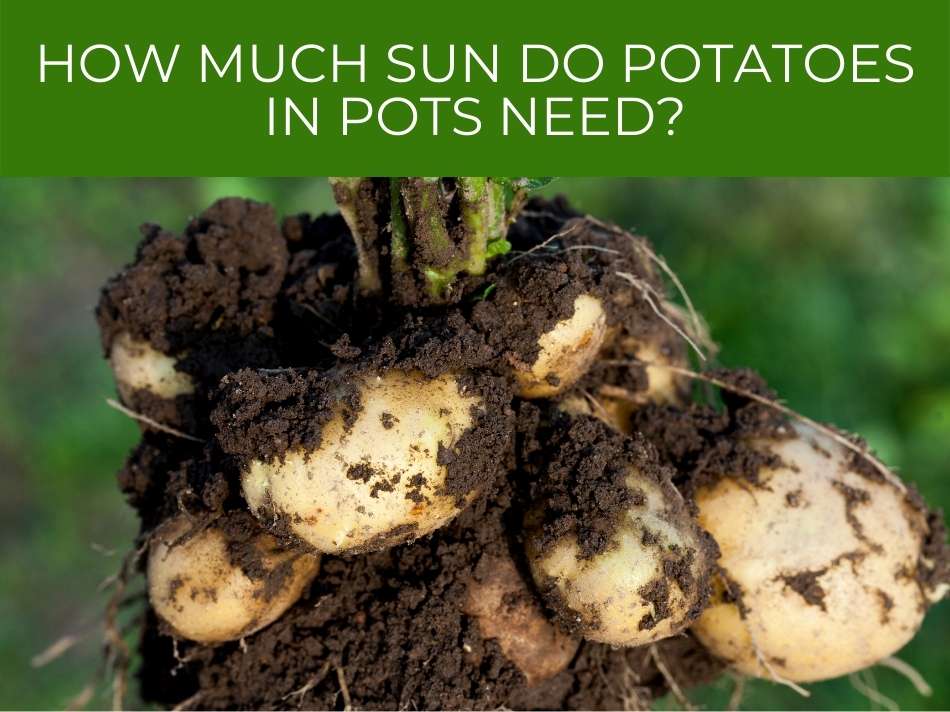
How much sun do potatoes in pots need?
If you have limited outdoor space, you can use a pot for growing potatoes. They can even be grown on a balcony or patio. To grow healthy potatoes in pots, choose a sunny spot that will get around 6 hours of sunlight per day.
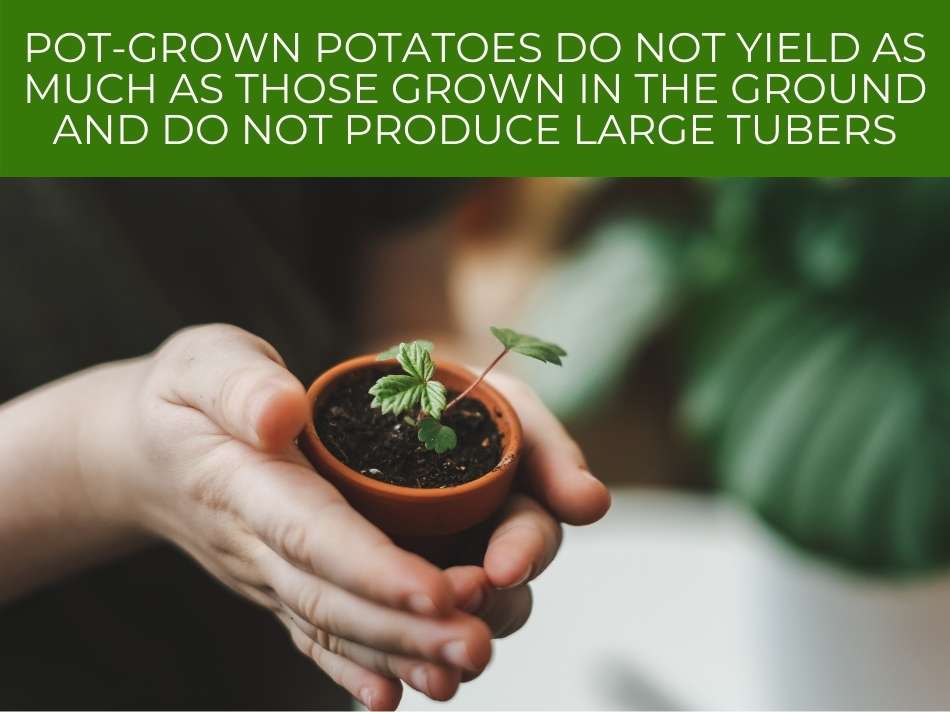
While pot-grown potatoes do not yield as much as those grown in the ground and do not produce large tubers, they are easy to harvest.
For those gardeners who want to avoid the hassle of digging through the soil at the end of the season, container-grown potatoes may be a good choice.
Simply empty the container out at harvest time and your potatoes are ready to go!
See our full guide on how to harvest potatoes
You can also supplement their light with an artificial light source if they don’t get enough natural light.
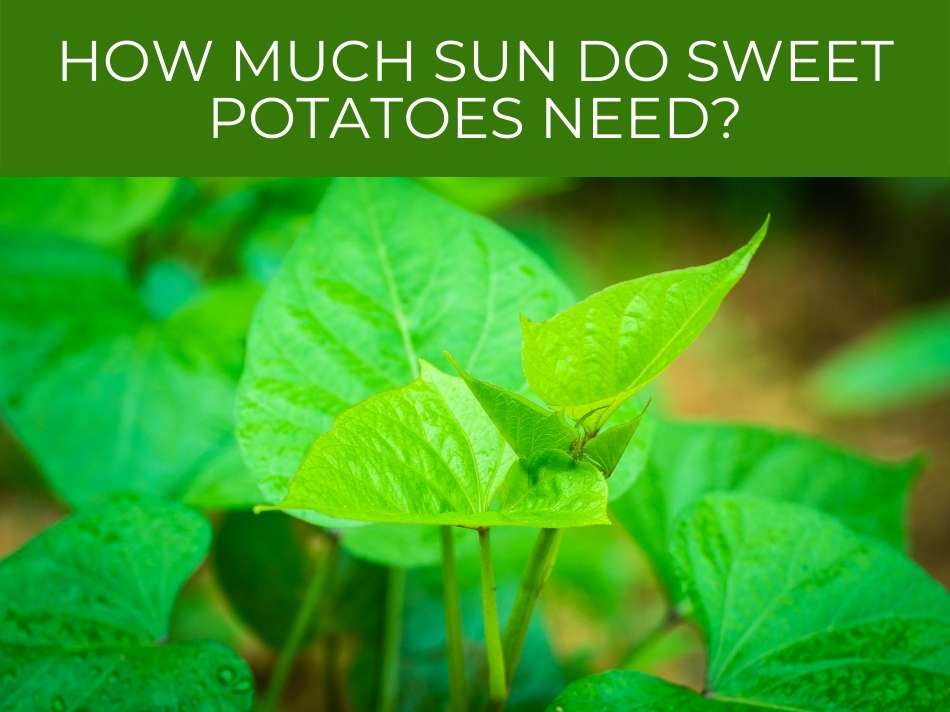
How much sun do sweet potatoes need?
Sweet potatoes are a hearty, nutritious root vegetable that can grow in partial shade. They are a warm-weather crop, so they need temperatures of between 70 and 80 degrees. Ideally, you should be aiming for your sweet potatoes to get 6 hours of sun per day.
The more sun they get, the more quickly they’ll grow and mature, so if you have an area that gets around 6 hours of sun each day then consider planting your sweet potatoes there.
Potatoes are very sensitive to frost, so should be planted around 4 weeks after the last frost.
If you live in a cooler climate, consider growing them in a greenhouse.
See how to set up a greenhouse.
Sweet potatoes like loose, well-drained soil that’s slightly acidic (pH 6–6.5).
They also like moderate amounts of water; too much or too little water can cause problems.
See our complete guide on how to grow sweet potatoes.

Final thoughts
Potatoes are a great plant for any amateur gardener to grow.
As long as you plant them in a nice sunny spot in your garden, and water them regularly, you should be able to enjoy a great crop by the end of the summer.
Bon appetit!

